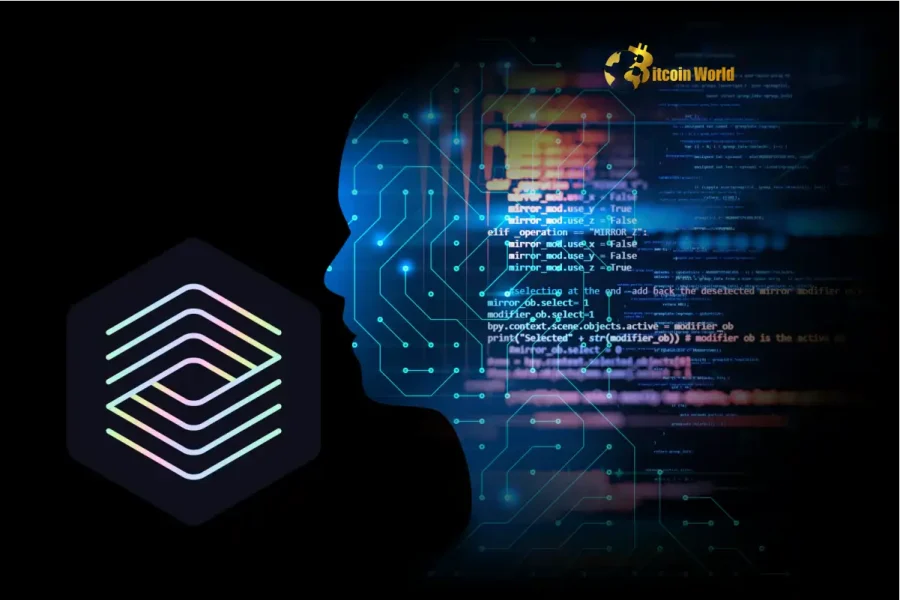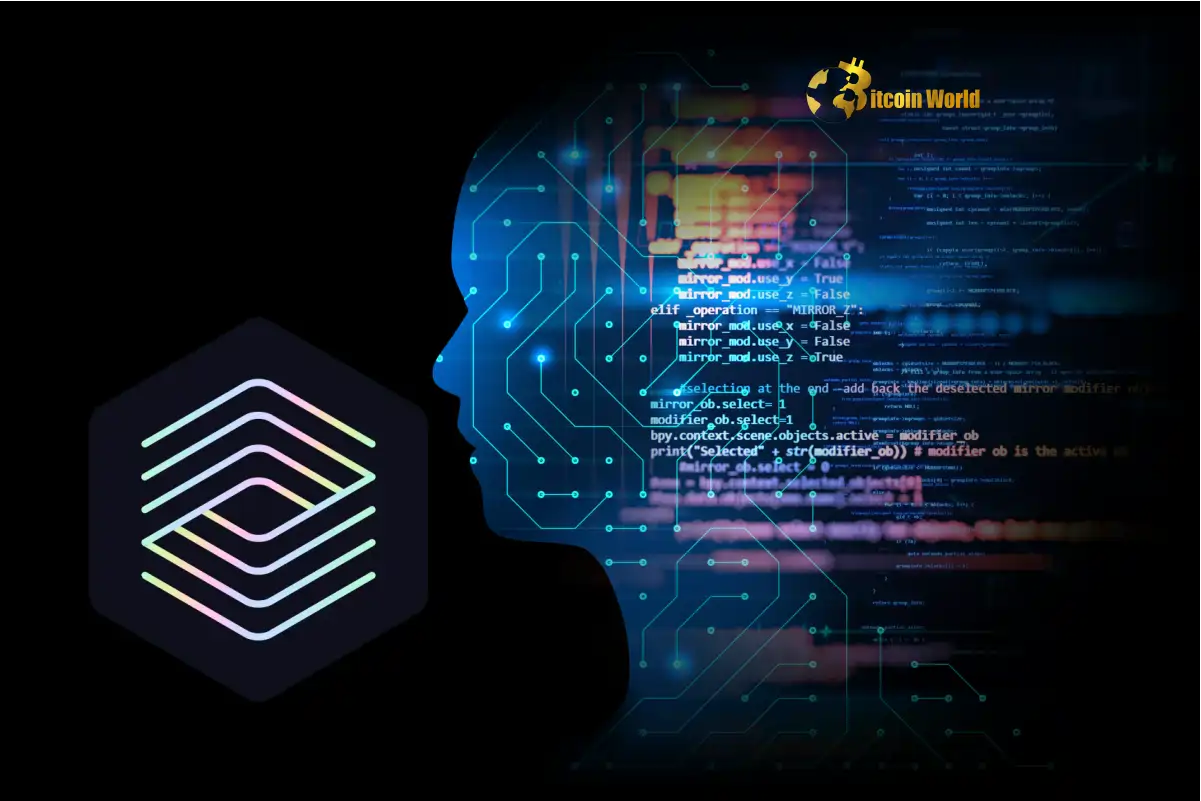OpenAI Codex: Unleashing Powerful AI Coding in ChatGPT
0
0

BitcoinWorld

OpenAI Codex: Unleashing Powerful AI Coding in ChatGPT
The world of technology is constantly evolving, and artificial intelligence is at the forefront of this change. For developers and those interested in the future of software creation, a significant announcement just dropped: OpenAI is integrating its most capable AI coding agent, known as OpenAI Codex, directly into ChatGPT.
What is OpenAI Codex and How Does it Work?
OpenAI Codex is built upon a specialized version of OpenAI’s o3 AI model, specifically optimized for software engineering tasks. This version, called codex-1, is designed to produce cleaner code and follow instructions more accurately than its predecessor. A key feature is its ability to iteratively run tests on the code it generates until it passes.
The agent operates within a secure, sandboxed virtual computer in the cloud. Users can connect their GitHub repositories, allowing Codex’s environment to be preloaded with their existing codebases. OpenAI states that Codex can handle various tasks, including:
- Writing simple features
- Fixing bugs
- Answering questions about your codebase
- Running tests
These tasks can take anywhere from one to 30 minutes, depending on complexity. Importantly, Codex can manage multiple software engineering tasks simultaneously without restricting users’ access to their own computer or browser.
Who Gets Access to This ChatGPT AI Feature?
The rollout of this advanced ChatGPT AI feature begins immediately. Initially, access is available to users of ChatGPT Pro, Enterprise, and Team plans. OpenAI is providing generous access to start, but anticipates implementing rate limits in the coming weeks. Users will then have the option to purchase additional credits to continue using Codex extensively. OpenAI plans to expand access to ChatGPT Plus and Edu users soon.
The Surge in AI Coding and the Market Landscape
The launch of OpenAI Codex comes amid a significant rise in the adoption of AI tools for software engineers. Industry leaders like Google and Microsoft report that AI now writes a substantial portion of their internal code, around 30%. Competitors have also been active; Anthropic released its Claude Code agent in February, and Google updated its Gemini Code Assist with more agentic capabilities in April.
This trend has fueled rapid growth for companies developing AI coding platforms. Cursor, a popular tool, reportedly reached $300 million in annualized revenue recently and is seeking new funding at a high valuation. OpenAI itself is reportedly acquiring Windsurf, another AI coding platform developer, for $3 billion. The integration of Codex into ChatGPT signals OpenAI’s strong intent to compete directly in this booming market segment.
Using the AI Code Generation Tool in ChatGPT
For users with access, the AI Code Generation tool, Codex, appears in the ChatGPT sidebar. Users can assign coding tasks by typing a prompt and clicking the ‘Code’ button. Asking questions about a codebase is also simple, using the ‘Ask’ button. A dedicated area below the prompting bar allows users to view assigned tasks and monitor their progress.
The Future of Software Engineering AI: Virtual Teammates?
OpenAI envisions AI coding agents evolving into ‘virtual teammates’ that can autonomously complete complex tasks that might take human engineers hours or even days. OpenAI is already leveraging Codex internally to automate repetitive tasks, scaffold new features, and draft documentation, demonstrating its practical application in a real-world software development environment.
Regarding safety, OpenAI states that the safety work done for their base o3 model also applies to Codex. The tool is designed to reliably refuse requests for developing malicious software. Its air-gapped environment, lacking access to the broader internet or external APIs, also limits potential misuse, though this isolation could slightly constrain its utility for certain tasks.
It is worth noting that, like other generative AI systems, AI coding agents can make mistakes. A recent study indicated that even leading models struggled with reliably debugging software. Despite this, investor interest in these tools remains high.
Updates to Codex CLI and API Access
OpenAI is also updating its open-source coding agent, Codex CLI, which runs in your terminal. It now uses a version of the o4-mini model optimized for software engineering. This model is the new default for Codex CLI and will be available via the OpenAI API. Pricing for the API is set at $1.50 per 1 million input tokens and $6 per 1 million output tokens.
OpenAI’s Strategy: Beyond the Chatbot
The launch of Codex is part of OpenAI’s broader strategy to enhance ChatGPT with a suite of specialized tools beyond its core conversational abilities. In the past year, OpenAI has added access to its AI video platform Sora, research agent Deep Research, and web browsing agent Operator for subscribers. These additions aim to increase the value proposition of a ChatGPT subscription and encourage existing users to purchase additional credits for tools like Codex.
In summary, the integration of OpenAI Codex into ChatGPT represents a significant step in making advanced AI Coding capabilities more accessible. While the technology is still evolving and has limitations, its potential to accelerate AI Code Generation and transform Software Engineering AI workflows is clear, positioning OpenAI to capture a larger share of this rapidly expanding market.
To learn more about the latest AI news trends, explore our article on key developments shaping AI features.
This post OpenAI Codex: Unleashing Powerful AI Coding in ChatGPT first appeared on BitcoinWorld and is written by Editorial Team
0
0
 Manage all your crypto, NFT and DeFi from one place
Manage all your crypto, NFT and DeFi from one placeSecurely connect the portfolio you’re using to start.




